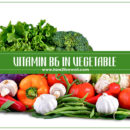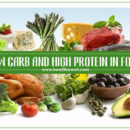Rich Foods in Potassium

21. Broccoli:
Your parents were right to make you eat your broccoli when you were a kid. If you’ve stopped eating it as an adult, now is as good a time as any to start back up again, especially if you’re concerned that you’re not getting enough potassium. A half-cup serving of broccoli contributes about 229 milligrams of potassium, along with other noteworthy nutrients such as vitamin C, calcium, folic acid, fiber, and more. Serving Size (1/2 cup raw), 229 milligrams of potassium (7% DV), 27 calories.
22. 1% Milk:
You already know that milk is high in calcium and vitamin D, but were you also aware that the potassium in milk can help with heart and muscle health? Choose skim or 1% if you’re on a low-fat diet. A cup of 1% milk provides about 366 milligrams of potassium. To make sure you’re getting the right amount of milk, remember to drink the milk that’s left over in your morning cereal, and drink it in place of soda or sugary drinks at dinner. Serving Size (1 cup), 366 milligrams of potassium (10% DV), 102 calories.
23. Chicken:
Chicken is considered a healthier option over red meat. If you’re concerned about the potassium in chicken versus red meat, you’ll be pleased to know that chicken is a viable source. Eating chicken breasts with the skin, as opposed to without it, increases the potassium by a tiny amount, but eating fatty fried chicken isn’t worth it for the increased potassium. A healthier option is to marinate a chicken breast and bake or grill it with your favorite herbs and spices. Serving Size (3 oz.), 216 milligrams of potassium (6% DV), 140 calories.
24. Pistachios:
Pistachio nuts have a unique look and flavor, but that’s not the only reason to love them. They’re a great source of potassium, and it’s easy to enjoy a handful when you need a quick and healthy snack. A one-cup serving nets you around 309 milligrams of potassium, contributing 8% to your recommended daily value. Serving Size (1/2 cup), 309 milligrams of potassium (8% DV), 176 calories.
25. Cantaloupe:
Typically, dried fruits over fresh fruits are recommended for their high vitamin and mineral contents. In the case of cantaloupe, fresh is the only way to go. The deliciously sweet and juicy cantaloupe is high in potassium, providing about 184 milligrams per wedge (or about 1/8 of a medium-sized melon). Cantaloupe is frequently enjoyed with breakfast, as a dessert, or in a succulent fruit salad. Serving Size (1 medium wedge, or 1/8 medium melon), 184 milligrams of potassium (5% DV), 23 calories.




